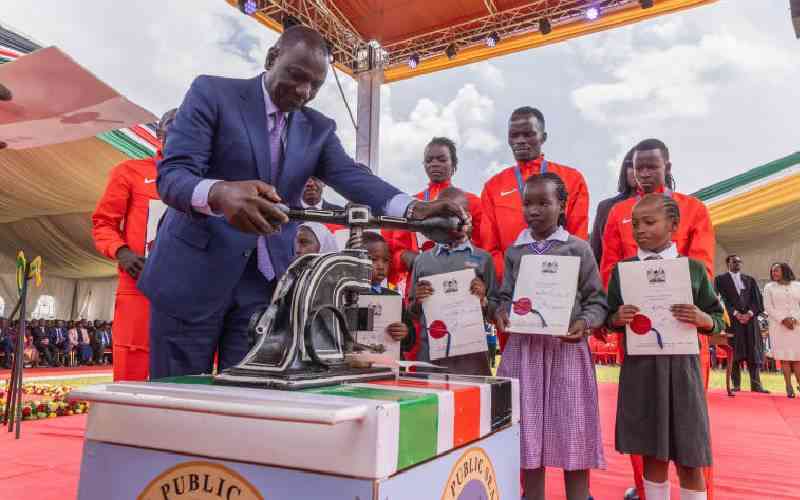In a democracy governed by the rule of law, symbols matter. They are not merely ornamental—they are vessels of sovereignty, legality, and institutional memory. Among these is the Public Seal of the Republic of Kenya, a mark of authenticity on treaties, commercial agreements, and official instruments that bind the nation in perpetuity. It is, by design and legal assignment, to be held in solemn trust by a constitutionally recognised office: The Attorney-General (AG) of the Republic.
Yet today, that sacred seal—your seal—is in the hands of Felix Kipatarus Koskei, the Head of Public Service, a man occupying an office that neither the Constitution nor any statute has established. The implications are dire: With the stroke of a pen and an unauthorised seal, Kenya can even be auctioned.
Section 28 of the Office of the Attorney-General Act, 2012, could not be clearer: “The Attorney-General shall have custody of the public seal of the Republic of Kenya.”
This is not a suggestion. It is the law. And yet, it has been deliberately violated in favour of a shadowy centralisation of executive power.
This raises three urgent questions:
- Why was the AG denied custody of the seal? To bypass the Attorney-General is to bypass independent legal oversight. It means decisions on whether a foreign commercial agreement, a bilateral treaty, or a debt guarantee is in the public interest are no longer vetted through the legal conscience of the nation. Instead, they are processed through an extra-legal conduit, likely more malleable to political whims than to constitutional dictates. It is a set-up for state capture.
- Why hasn’t the AG protested this heinous act? This silence is deafening. The woman who ought to be the nation's legal sentinel has neither spoken nor protested. Her constitutional obligation is not to the Executive, but to the people of Kenya. If the seal has been taken from her custody, then it is not merely an administrative mishap—it is a coup against legality, and silence becomes complicity. Could it be that the silence is strategic? That it reflects a capture or co-optation of the Office of the AG itself?
- Is this why Justin Muturi was removed? Was Muturi’s exit as AG the precondition for this power grab? We are left to speculate whether his commitment to legal propriety clashed with the wishes of a regime eager to cut corners. If so, his removal may have been the price of noncompliance. In his place, we now have an AG who says nothing even as the nation’s legal instruments are handed to an unconstitutional office.
The issue here is larger than a seal. It is about who gets to speak for Kenya, who signs on our behalf, and whether we are protected from the reckless mortgaging of our future. That seal may be small in size, but it wields immense power. It turns informal promises into binding national obligations.
This hijacking of the public seal is symbolic of a broader pattern: The erosion of legal safeguards, the undermining of independent institutions, and the normalisation of illegality. Kenyans are being governed not through law, but through a fragile web of impunity, informality, and executive overreach.
We must demand answers, and more importantly, we must demand a return to legality. The Attorney-General must publicly account for the whereabouts of the seal. Parliament must summon those responsible. Civil society must raise the alarm. For if we allow even our most sacred national symbols to be abused in silence, we will wake up in a nation that has been sold—legally, permanently, and without consent. Kenyans, your seal has been stolen. Will you speak now or forever hold your peace?
Naitule is a professor of management and leadership, By Gitile Naituli, The Standard






